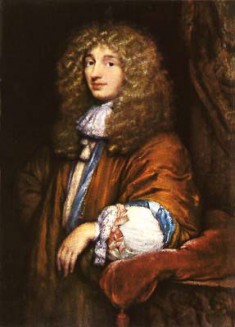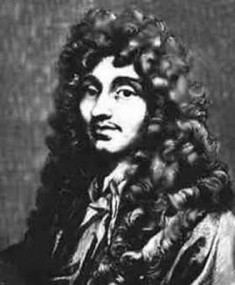| Christiaan Huygens | |
|---|---|
 |
|
| Natural Philosopher | |
| Specialty | Mathematics, astronomy, physics, probability, horology |
| Born | Apr. 14, 1629 The Hague, Dutch Republic |
| Died | July 8, 1695 (at age 66) The Hague, Dutch Republic |
| Nationality | Dutch |
Christiaan Huygens was quite an interesting person. Among the more amusing aspects of his life is how he contributed significantly to the development of games of chance. He was not someone who was solely involved in pursuits of whimsy. Huygens was also a great thinker who contributed greatly to the fields of mathematics and astronomy.
Early Years and Education
Christiaan Huygens was born on April 14, 1629, in the Dutch Republic of The Hague. He was born into a family known for its great affluence and this certainly allowed his great opportunities to pursue his education. Huygens was educated at home until his late teens by his father and tutors. His math tutor was very demanding and required him to read a great deal about the sciences and the field of mathematics. However, there was great benefit to this experience as it helped set Huygens down the path of more serious study.
As a young man, he attended the University of Leiden and concentrated on law and mathematics. He studied there for two years before moving to the College of Orange to finish out his studies.
Researching the Sciences
Huygens eventually returned to his family home and began to invest a great deal of time researching math and the sciences. Sadly, the time he spent at home was not entirely enjoyable for him as he would suffer from varying bouts of depression. He began to organize the various materials he compiled when he was a student.
Huygens was somewhat reluctant to do this as he may have helped some doubt in his own abilities. He did eventually put his thoughts together and crafted the work Theoremata de Quadratura, which was published in 1651. The subject of the work was quadrature, which deals with the mathematical means of determining an area. The work also delved into the somewhat esoteric subject of squaring a circle.
There was another unique work that Huygens published. The work, On Reasoning in Games of Chance, was equal parts lessons on mathematical probability combined with the idea of playing games of chance.
Work in Spherical Lenses

Huygens developed an interest in spherical lenses and invested some time in time studying them. The amount of time he studied these lenses was not one of pure hobbyist pursuits. Through his work, he was able to develop what is known as the Huygenian eyepiece, which could be fitted on a telescope. The eyepiece would greatly improve certain telescopes allowing this eyepiece to contribute to the improved use of said telescopes.
Working in Astronomy
Huygens was involved in several fields and disciplines. He even spent some time learning about music theory. Eventually, he found his way into the field of astronomy and he accomplished many great achievements upon doing so.
Easily, the greatest achievement he attained was his work related to the planet Saturn. Upon designing his own telescope, he was able to provide proof to his theory that Saturn was surrounded by a solid ring. He also became the first person to discover the very first moon that orbited Saturn, Titan.
He also spent much of his time observing the Orion Nebula and would create sketches based on these observations.
His Cosmotheoros Treatise
Probably the oddest work Huygens would become involved with was his treatise, Cosmotheoros. This work was finished before he passed away and was published shortly after his death. The work was a strange as it dealt with the possibility that life existed on other planets. The work even went so far as to speculate that there were planets identical to earth out there somewhere. Again, this was quite the strange sojourn from the more serious work he had been known to write and study about.
Then again, he likely did take the material seriously and was not trying to write a work of commercial whimsy. Since he had passed away before the release of Cosmotheoros, we can only speculate what further work on this topic he may have produced if the initial publication was received to his satisfaction.
Christiaan Huygens passed away on July 8, 1695.